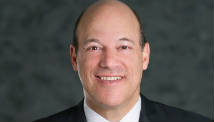A global treaty on mercury pollution will do more harm than good if it bans the vaccine preservative thiomersal
NEXT week, governments from around the world will gather in Geneva to finalise a long-overdue treaty on mercury. The aim of the negotiations is laudable: to ban those mercury-laden products and pollutants that are a danger to human health and the environment.
Among the targets are some of the most toxic products of the industrial age, including methyl mercury. This notorious compound killed and injured thousands in the Japanese city of Minamata in the 1950s and 1960s and still poses a significant global health risk.
Another compound facing a possible ban, however, is a benign medicinal preservative called thiomersal (thimerosal in the US). Although it contains mercury, there is no evidence that it is harmful. In fact, it helps save the lives of well over a million children every year. Banning it would be a grave mistake.
Thiomersal aside, the world clearly needs to deal with mercury pollution. Mercury is a powerful neurotoxin that is especially dangerous to unborn children. Estimating its global impact is difficult but in some populations almost 2 per cent of children are born with mental retardation caused by mercury poisoning.
Much of this mercury comes from industry, which consumes about 3400 tonnes of the element a year. About a third of this is used in batteries, 800 tonnes in a process called chlor-alkali manufacturing and 650 tonnes in so-called artisanal mining.
Most eventually finds its way into the environment, along with mercury released from burning coal, smelting metal, making cement and incinerating waste. Large quantities of mercury are also released by natural processes such as volcanic eruptions, forest fires and erosion. The United Nations Environment Program estimates that the total global emissions of mercury are between 4400 and 7500 tonnes a year.
Mercury released into the environment eventually finds its way into oceans, lakes and rivers, where it is converted into methyl mercury by microorganisms. This toxic compound accumulates up the aquatic food chain and is often concentrated at high levels in fish, shellfish and marine mammals - and ultimately in the people who eat them. Methyl mercury in food is the biggest cause of mercury poisoning.
In comparison to industrial and natural mercury emissions, thiomersal is negligible. The European Union's vaccine industry uses less than 0.25 tonnes of thiomersal a year, corresponding to just 100 kilograms of mercury. The American Academy of Pediatrics has described this as "infinitesimally small".
Thiomersal also serves an irreplaceable function. It has been added to medical products since the 1930s as a preservative, including in vaccines packaged in multi-dose vials. These are especially vulnerable to bacterial and fungal contamination because many doses are drawn from each vial. Single-dose vials, in contrast, are used once and then thrown away.
Vaccinating from multi-dose vials is cheaper than from single-dose ones. Multi-dose vials also take up less space, reducing the amount of refrigerated storage required to get them to where they are needed. They are thus particularly important for poorer countries, which do not have the money or facilities to use single-dose vials for large-scale immunisation programmes.
Currently 120 countries, accounting for 64 per cent of global births, depend on thiomersal-containing vaccines. These prevent an estimated 1.4 million child deaths a year, according to the World Health Organization. At present there is no substitute.
Thiomersal is also added to influenza vaccines, which can be important in developed countries. The consequences of banning the compound are therefore wide-reaching and dramatic.
A number of developing countries have expressed concern over thiomersal's proposed ban. Public health experts around the world, including the WHO, have no doubt about the importance of allowing it to remain in vaccines.
So why has thiomersal been dragged into the negotiations? The debate is partly fuelled by a historic confusion between risks ascribed to methyl mercury and the ethyl mercury in thiomersal. In 1999, the American Academy of Pediatrics and the US Public Health Service issued a joint statement recommending the removal of thiomersal from vaccines as a precautionary measure, following a US Food and Drug Administration review.
At the time there was abundant evidence that methyl mercury was toxic, but little evidence on ethyl mercury. Additional pressure came from rumours of a link between thiomersal and autism. Since then, however, numerous studies have shown that thiomersal is harmless.
In 2006, an expert panel convened by the WHO issued a statement on thiomersal in vaccines, concluding that there was "no evidence of toxicity". It highlighted the fact that while methyl mercury builds up in the body, ethyl mercury is excreted rapidly. The American Academy of Pediatrics has since endorsed the WHO's position.
Nonetheless, a handful of well-meaning campaigners still believe that thiomersal is harmful. Led by two groups - the Coalition for Mercury-free Drugs and SafeMinds - they have brought the thiomersal "debate" into negotiations designed to address environmental problems.
What happens next depends on the negotiators. The latest draft treaty does not specifically name thiomersal, but there is a clause that leaves the door open for additional items to be added.
There is no question that mercury is dangerous. But thiomersal is not a threat, and banning it would create far more human misery than failing to negotiate a treaty at all.
Heidi Larson is an anthropologist at the London School of Hygiene and Tropical Medicine who studies public trust in vaccines
If you would like to reuse any content from New Scientist, either in print or online, please contact the syndication department first for permission. New Scientist does not own rights to photos, but there are a variety of licensing options available for use of articles and graphics we own the copyright to.
All comments should respect the New Scientist House Rules. If you think a particular comment breaks these rules then please use the "Report" link in that comment to report it to us.
If you are having a technical problem posting a comment, please contact technical support.












